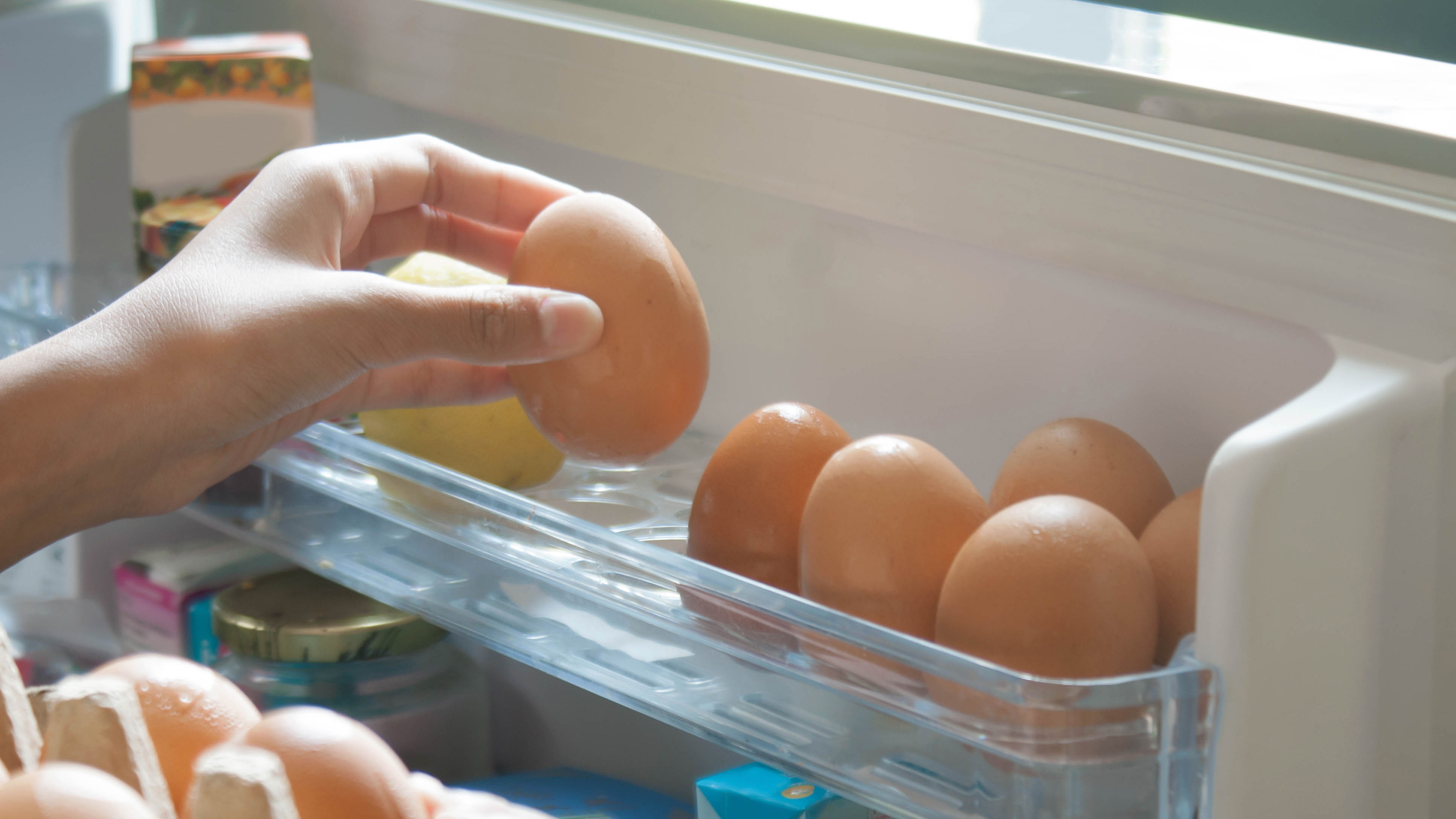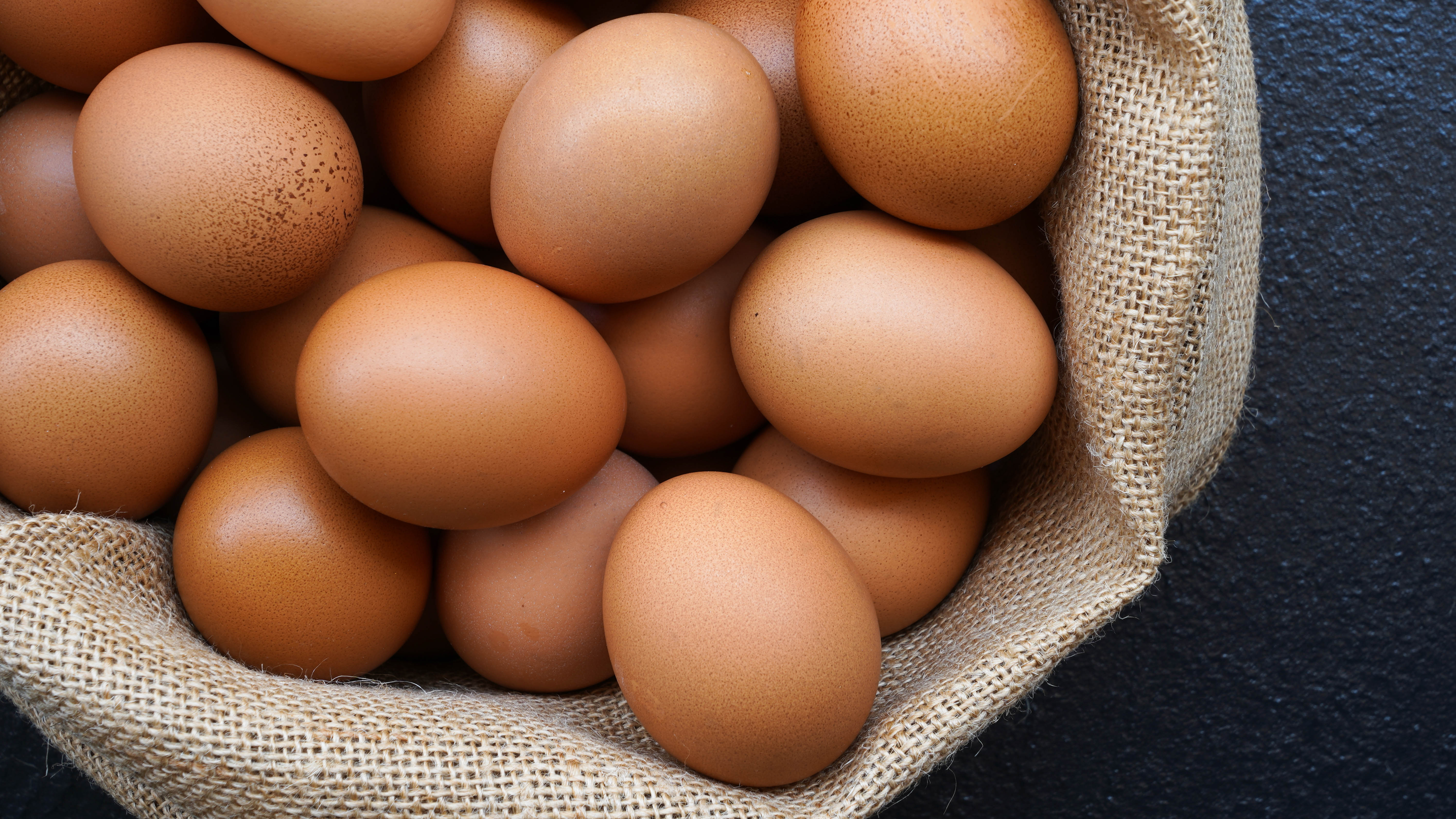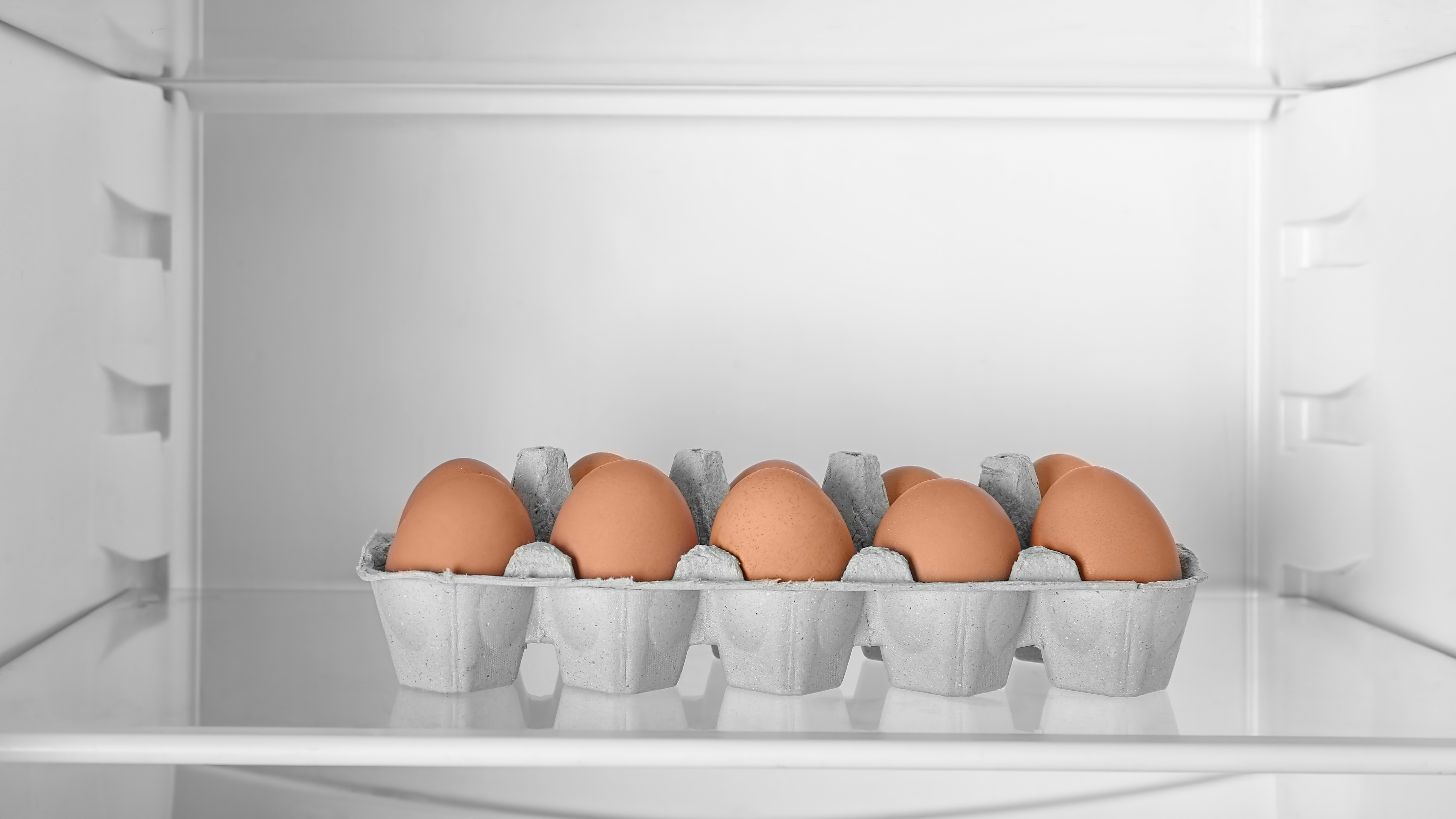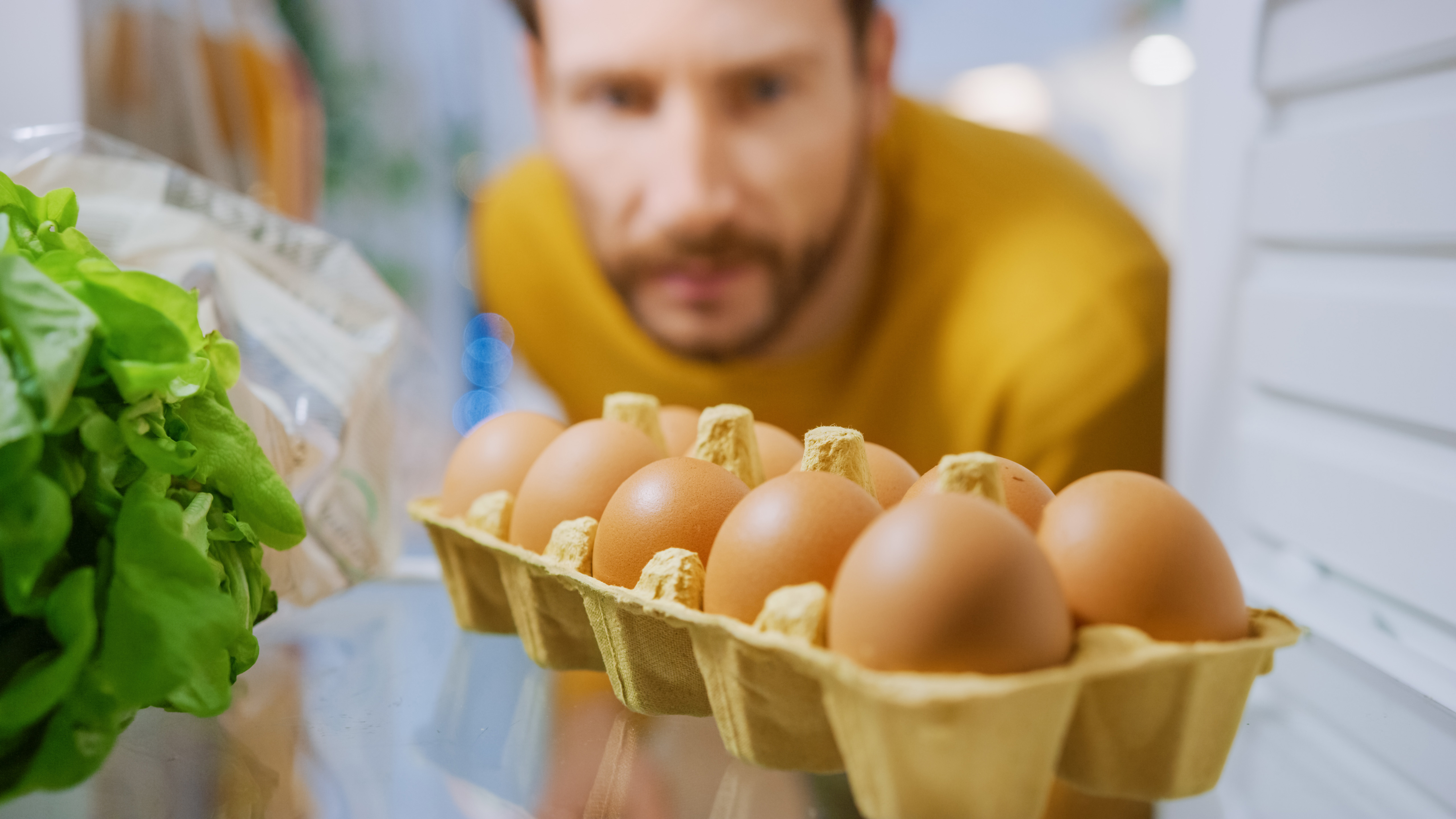Should you keep eggs in the refrigerator? The answer might surprise you
Should eggs go in the fridge or in the cupboard? Here’s the answer

Here at Tom’s Guide our expert editors are committed to bringing you the best news, reviews and guides to help you stay informed and ahead of the curve!
You are now subscribed
Your newsletter sign-up was successful
Want to add more newsletters?

Daily (Mon-Sun)
Tom's Guide Daily
Sign up to get the latest updates on all of your favorite content! From cutting-edge tech news and the hottest streaming buzz to unbeatable deals on the best products and in-depth reviews, we’ve got you covered.

Weekly on Thursday
Tom's AI Guide
Be AI savvy with your weekly newsletter summing up all the biggest AI news you need to know. Plus, analysis from our AI editor and tips on how to use the latest AI tools!

Weekly on Friday
Tom's iGuide
Unlock the vast world of Apple news straight to your inbox. With coverage on everything from exciting product launches to essential software updates, this is your go-to source for the latest updates on all the best Apple content.

Weekly on Monday
Tom's Streaming Guide
Our weekly newsletter is expertly crafted to immerse you in the world of streaming. Stay updated on the latest releases and our top recommendations across your favorite streaming platforms.
Join the club
Get full access to premium articles, exclusive features and a growing list of member rewards.
When it comes to storing food, eggs are one of the items that many of us can end up arguing over. After all, depending on where you are in the world, eggs can be sold via a refrigerator or simply stacked on the shelves at room temperature. Yet, if they are sold at room temperature, the best refrigerators tend to still come with a dedicated compartment for eggs. So what’s going on here? Where do these eggs belong?
The fact is, depending on your country, eggs will be processed differently. That means there’s a difference in the final product you’re buying — which equates to different storage requirements. If you’re keen to learn more, here we breakdown the alternative treatment of eggs as well as best storage solutions. So you can finally settle the debate of whether eggs are one of the foods that you should never put in the fridge.
Why are some eggs sold chilled and others at room temperature?
Different countries have alternative treatments of eggs. This is all to the same purpose — to reduce the risk of salmonella. Salmonella is a type of food poisoning which can occur for a number of reasons; usually it’s a consequence of eating undercooked food, but eggs and milk can carry the bacteria which causes it as well. The bacteria can be present on the surface of the egg shell, as hen’s feces make contact with it, or it can also be developed within the egg if the hen itself is infected.
In America, the US Department of Agriculture requires eggs to be washed prior to selling to remove any potential bacteria which could cause Salmonella. This essentially involves the eggs being rinsed as part of processing. Some also go through a process called ‘candling’ where the eggs are essentially held against a light source to check for cracks in the shell. An egg can carry bacteria within once it is cracked, so these need to be removed.

The problem is, washing eggs removes a protective layer which has formed on the shell, known as the bloom or cuticle. Once this coating is gone, the pores underneath are exposed, which means bacteria now has a better chance of contaminating the egg. So once the eggs are washed, they need to remain refrigerated to keep the bacteria at bay. That’s why eggs in the U.S. are sold via the refrigerator.
Eggs with the bloom still present, conversely, have better protection from the external bacteria and can consequently be kept at room temperature. In this case, any bacteria will likely just remain on the shell, rather than penetrating to the inside. That’s why around Europe and Asia, eggs are sold straight from the shelf. It’s worth adding that in the Europe, hens are often vaccinated to reduce the risk of salmonella as well.
So which is the better method? Really there’s no obvious answer; both processing methods (or lack of) reduce the risk of bacteria. Although the washing and candling method is clearly more costly, the added refrigeration will help ultimately extend the lifespan of the eggs, so that’s one benefit. There’s also a better chance of spotting defective eggs if candling is used as part of the processing.
Get instant access to breaking news, the hottest reviews, great deals and helpful tips.
So, as long as the eggs remain chilled, washing them as part of processing does ultimately provide a fresher and more quality-consistent product. But, you can also argue that it's riskier as there's more of a chance for bacteria to develop if the refrigeration isn't constant from farming to the shop shelf.
So how should you store your eggs?
If you’re in the U.S, the answer is clear — keep your eggs in the refrigerator. Your washed eggs will be at risk of bacteria entering through the shell and developing within if they remain at room temperature for too long.

If you purchased your eggs at room temperature, you can be more flexible with your storage. You can of course continue to store your eggs at room temperature — the key is keeping the conditions cool, dry and consistent, so don’t move your eggs from one extreme environment to the other. However British Lion Eggs recommends sticking to the fridge: ‘best practice is to store eggs in the fridge; that way the temperature is always at a constant and your eggs will be fresher.’ A refrigerator will help your eggs last longer as well.
According to the USDA, eggs should be kept in the coldest part of the fridge. With this in mind, you should avoid using the door, where the misleading egg rack may have been placed. Using the door will not only subject the eggs to regular and more obvious temperature fluctuations, the constant moving as the door opens and shuts could also dislodge and damage the shells.

Stick to the supplied carton — this best fits the eggs' shape and will offer more substantial protection, not just from impacts, but from cross contamination between foods — and keep your eggs at the back of the refrigerator. Ideally, the fridge temperature should be around 35 to 38 degrees F; you don’t want it any cooler or hotter than this for risk of freezing the food or giving bacteria a chance to grow.
Can you freeze eggs?
While you might not have thought about it before, you can indeed freeze your eggs. However. It’s not as simple as throwing the carton in there. As it’s frozen, any liquid inside a shelled egg will expand and potentially compromise the shell, leaving it at risk to bacteria.
For this reason, you’ll have to crack your eggs open and beat the contents before storing it in the freezer. You could use a freezer storage bag or an airtight container to hold the liquid. Make sure you write the date on whatever you use — your frozen eggs will need to be consumed within a year. Here are other foods you should never put in the freezer.

Katie Mortram used to be a Homes Editor for Tom's Guide, where she oversaw everything from kitchen appliances to gardening tools, as well as smart home tech. Specializing in providing expert advice for cleaning and home manintenance, she now works as Household Advice Editor for Good Housekeeping.
 Club Benefits
Club Benefits










